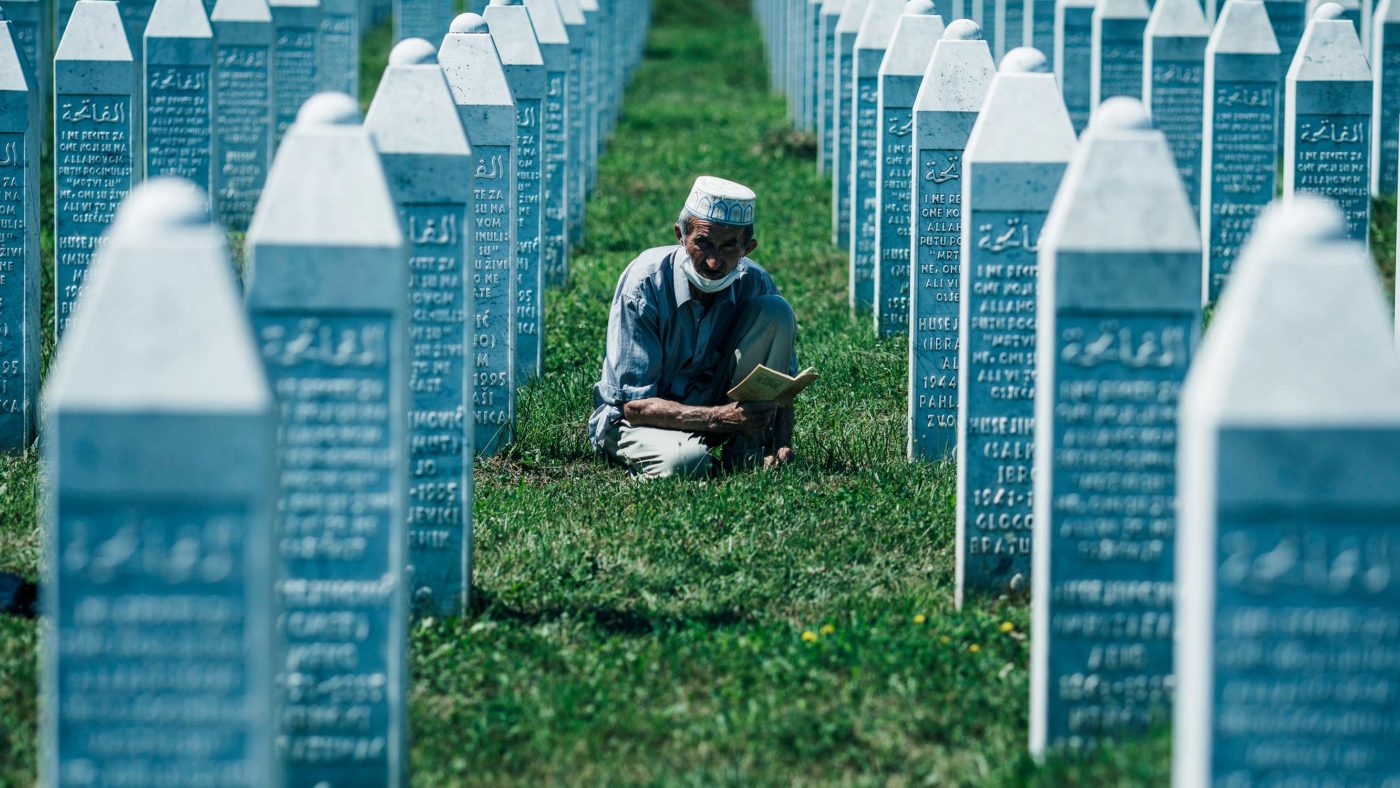Five years ago, The International Criminal Tribunal for the former Yugoslavia found former Bosnian-Serb President Radovan Karadžić guilty of war crimes. Following one of the most significant trials in the post-war era, Karadžić was found guilty of the deliberate removal of populations, the siege of Sarajevo and the hostage-taking of UN peacekeepers. But the landmark ruling for which Karadžić will be most remembered for is the one that found him guilty of genocide in Srebrenica.
As with the Holocaust, atrocities in Srebrenica took place under the veil of war, with Bosnian Serb troops and paramilitaries slaughtering around 8,000 innocent men and boys. And like the Jews were murdered by the Nazis for being Jews, the men in Bosnia were also murdered because of who they were – Muslim men. The result was the largest incident of systematic mass-murder in Europe since the Second World War.
Survivors of genocide can end up waiting decades for justice. The Nuremberg Trials, which saw their 75th Anniversary last November, delivered a form of justice by trying senior Nazis for their roles in the Holocaust and forming the foundation for modern international justice. The International Military Tribunal established at Nuremberg outlined a simple truth – that individuals must be held accountable for their participation in atrocities no matter their rank – applicable in international law ever since.
As a result of the legal framework established in Nuremberg, the United Nations promptly set up The International Criminal Tribunal for the former Yugoslavia to investigate the atrocities committed against Bosnia’s Muslim community. And though it took thirteen painful years, Karadžić was eventually arrested and charged for ordering the massacres in Srebrenica. His long trial served to shine a light on the darkest chapter in Europe’s history since the liberation of concentration camps in 1945. Karadžić was found guilty by the International Criminal Tribunal of Genocide and now lives behind bars.
Was justice served with his life imprisonment? Does it bring closure to see the senior perpetrators pronounced guilty? Could anything feel just for the family members who saw their sons and husbands murdered in Srebrenica and bulldozed into mass graves? Justice means uniquely different things to different people. Most of us will never have the opportunity to be part of the decisions and mechanisms that bring perpetrators of genocide to justice, but there are still things that each of us can do to prevent genocide from developing.
When ethnic cleansing began in his neighbourhood, Safet Vukalic narrowly avoided being sent to concentration camps with his father and older brother. Reflecting on the five years after Karadžić was found guilty of genocide, Safet told me:
“When Karadzic was found guilty of genocide in Bosnia there were many that were pleased and thought this finally means Bosnians and the whole region will be able to move away from the horrible past of the 90s. Twenty-five years on mass graves in Bosnia are still being uncovered. Many are still looking for their loved ones.
“The Political Party Karadzic led in the 90s orchestrated concentration camps – the first in Europe since WWII. My father and brother survived 4 concentration camps between them in Prijedor. Genocide is still denied today by the Republika Srpska leadership who see Karadzic as their hero.
“Committing genocide in Bosnia has created Republika Srpska.
“Committing genocide should be stopped, not rewarded.”
Genocide does not happen overnight. Each past atrocity began with acts of hostility that went unchallenged – and became normalised and
That is why it is especially important today to guard against hostility and identity-based prejudice. We’ve seen tensions created by coronavirus used to scapegoat minorities, making identity-based hostility more likely. And as misinformation, health concerns and money worries heighten tensions, we must remember the lessons of the past: civilisation is fragile, and we are its guardians.
Click here to subscribe to our daily briefing – the best pieces from CapX and across the web.
CapX depends on the generosity of its readers. If you value what we do, please consider making a donation.


